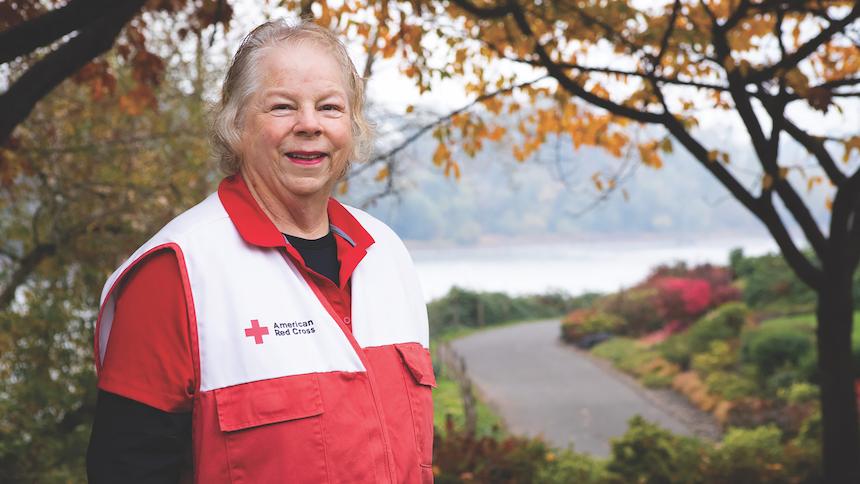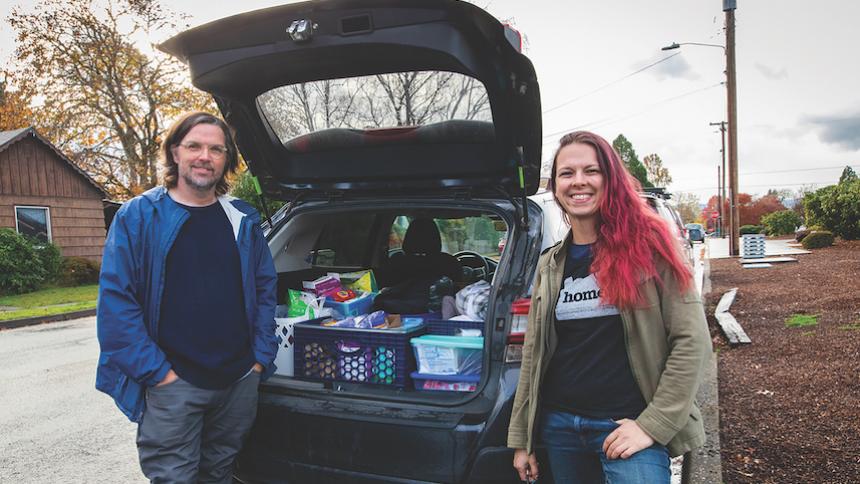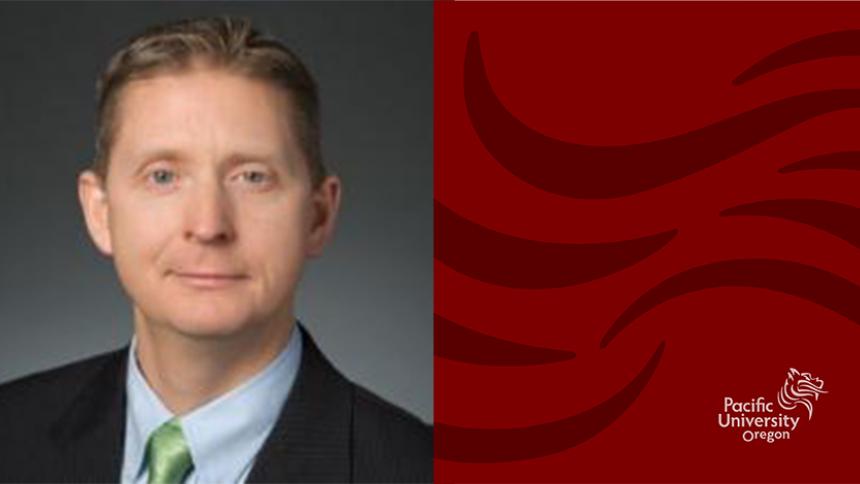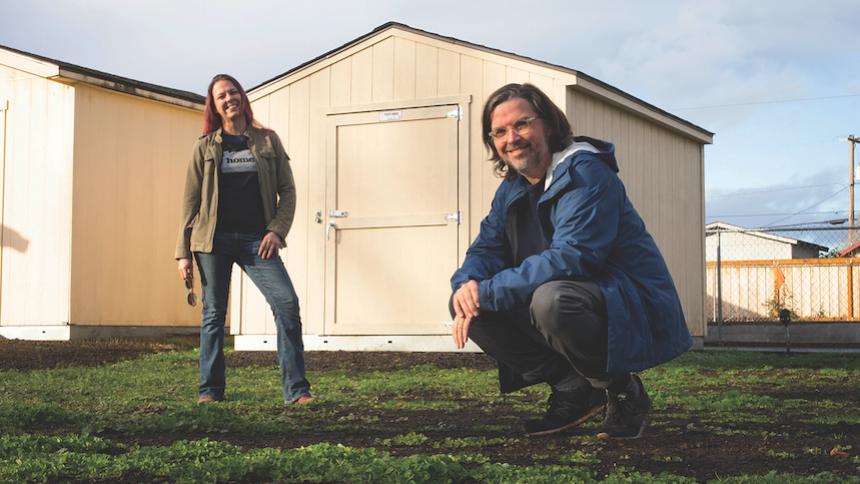Pacific Students Drop Their Notepads and Grab Their Shovels to Fight Oregon Fires

Hunter Murphy ’23 says one of the highlights of his time on the Oregon fire line occurred after dark, when the people who lived in one of the houses he and his fellow crew members had protected emerged to give them hugs.
“It was great,” said the criminal justice major and Pacific University basketball player, who volunteered to fight fires in the Estacada area of Clackamas County, Ore., this fall. The area wasn’t very far south of his own family’s home in Sandy, Ore., where family members evacuated rather than risk being overrun by the fires that swept across Oregon in September.
Murphy, along with Joseph Schmitz ’23, a business management major from Silverton, Ore., left campus in September to fight wildfires in separate locations in Oregon. Murphy was a volunteer who had some firefighting training; Schmitz was a trained firefighter employed by a company called Miller Timber Services, which contracts with public agencies to provide fire crews.

Both jumped when the call arose for firefighters. Murphy went with a friend to the area where fires had crept closest to his home; Schmitz was sent to Lincoln County on the Oregon Coast, where the Echo Mountain fire was burning around the towns of Otis and Rose Lodge. They battled fires in sharply different circumstances. Murphy was a fairly raw volunteer, racing to join community members who had rallied to protect their own homes and homes of their neighbors. Schmitz, on the other hand, rejoined his trained firefighting teammates, who had a clear command structure and firefighting protocols they had honed in training together.
“There was no way I could focus on classes,” said Schmitz, especially since his own family was evacuating from their Silverton home. While he was paid for his time fighting fires, “honestly, I would have done it anyway,” he said.
Oregon has never seen such a scourge of wildfire as it experienced this fall. Typically, seasonal fires caused by lightning strikes, human carelessness and, sometimes, arson, burn up extended acreage, especially in the dry brush country east of the Cascade Mountains.
But this year, an unprecedented combination of circumstances ignited fires that threatened vast parts of western Oregon, including the population centers of Medford, Salem and the southeastern portion of the Portland metropolitan area. Fires destroyed the towns of Phoenix and Talent, near Medford, in the southern part of the state, and mountain towns like Detroit and Gates in the Santiam Canyon area west of Salem.
As of mid-October, an estimated 1 million acres had burned in Oregon and 11 people were killed as a result of the wildfires. Smoke from the fires was so extreme that it gave the Portland area the world’s most dangerous air quality for about a week, leading Pacific University to halt all activities and ask students to remain in their rooms or houses.
More than 40,000 Oregonians evacuated their homes, with about 500,000 living in variously rated evacuation zones. Firefighters rushed to the state from a range of places, including neighboring states and the Oregon National Guard. In many places, the only firefighters were local residents with construction equipment and shovels, often with insufficient water.
“Those were the true heroes,” Schmitz said.
Such people made up Murphy’s crew, which consisted of about 10 people, from relatively raw recruits to people with firefighting experience. When Murphy showed up wearing a nylon jacket, an experienced crew member advised him to take it off. Burning embers could melt it to his skin, he said.
.jpg)
He also learned about the dangers of unseen fires burning through the organic fuel under the surface of the ground, beneath tree roots. They can liquefy the earth, creating traps for unwary firefighters.
Murphy plunged his foot through one such soft spot and, he said with raised eyebrows, “it was hot.” By the time he extracted himself, the sole of his boot had melted. Another firefighter on his crew suffered third-degree burns the same way.
But in general, Murphy and Schmitz avoided extreme danger while cutting brush and digging lines to arrest the fires. They saw and heard significant damage — smoking ruins of houses, exploding propane tanks and ravaged natural areas — but did their parts to keep it from being even worse.
“It breaks my heart to see what climate change is doing to our planet.”
—Joseph Schmitz '23
Schmitz emailed his professors when he got the call for help, and he said they were very lenient with him, allowing him to make up work when he returned. And every professor, he said, “asked me how my family was doing.”
Murphy somehow managed to not miss any schoolwork. He said he attended his classes remotely from the field — a silver lining, perhaps, to Pacific’s response to the COVID-19 pandemic, which has forced a hybrid of online and in-person study options.
Both men say the fires exposed serious shortcomings in the region’s preparation for devastating fire, and both said climate change is a key contributor.
Murphy said climate change has worsened the spread and reach of wildfire, but that the forest floors are also full of fuel, waiting for a spark to burst into flame. Something has to be done to correct the buildup at the federal and state levels, he said.
“It breaks my heart to see what climate change is doing to our planet,” Schmitz said. He cited the damage done to the Opal Creek Wilderness Area, in the Willamette National Forest east of Salem. Some of Oregon’s oldest trees and most appealing natural areas were destroyed by fire.
“I really hope one of the products of this is a conversation locally about forest management,” he said. ■
This story appears in the Winter 2020 issue of Pacific magazine as part of the Boxers are Helpers series. For more stories, visit pacificu.edu/magazine.








